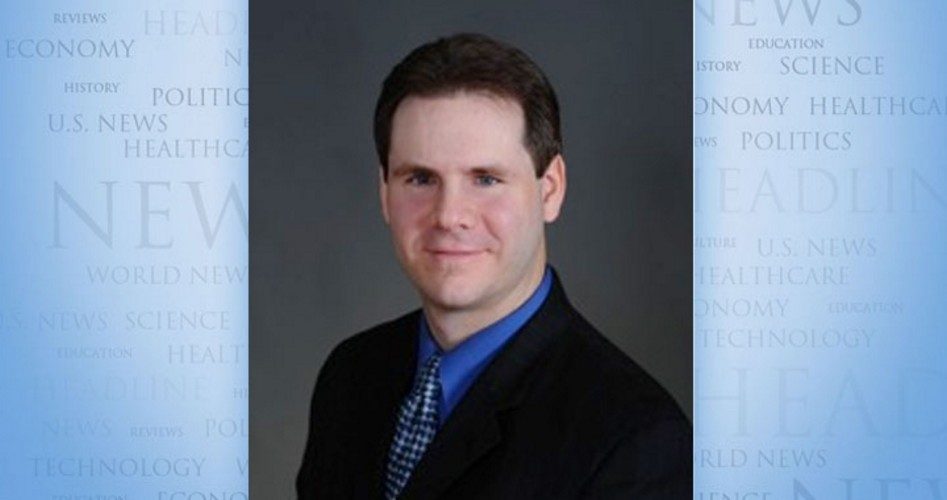
Would you want to be ruled by a government of unelected Anthony Faucis? It’s a relevant question because, although it’s seldom framed this way, that’s precisely what the “Chevron doctrine” gave us for 40 years. Overturning almost 200 years of precedent — the precedent whereby our elected representatives made law and, if it was ambiguous, people could at least have their day in court and see the matter adjudicated — Chevron transformed the federal bureaucracy into a de facto fourth branch of government. This ever-burgeoning entity’s shadowy, unelected members could by bureaucratic fiat hand down rules micromanaging our lives, and we had no recourse. It was “Go fight City Hall.”
Now Chevron is gone, struck down by the Supreme Court last Friday. And while some Chicken Littles warn the sky is falling, we should celebrate the doctrine’s demise, says The Daily Caller’s Gage Klipper. For now a blow has been struck for freedom, he states — and against “an unelected and unaccountable permanent ruling class” that has long been stealing our rights.
History of Chevron Deference
For the record, Chevron was established in 1984’s Supreme Court case Chevron Inc. v. Natural Resources Defense Council. Yet the case’s particulars aren’t relevant because the matter in question — agency deference — was being debated and was going to be settled eventually regardless; Chevron was simply the vehicle through which it happened.
Here’s what is relevant: “The Court ruled that if a Congressional statute is ‘ambiguous,’ then courts must defer to an agency’s own reasonable expertise,” informs Klipper. “But it is the bureaucratic experts themselves who interpret where the gaps in law lie, effectively establishing the scope of their own authority. Whether it’s the EPA, FDA, CDC or the IRS, the near universally left-wing ‘experts’ staffing these agencies had carte blanche to fill in the blanks of legislation with their own statutory interpretations. And the courts were powerless to do anything about it.”
Note here that congressional statutes are often ambiguous — sometimes, perhaps, by design. Here’s the process: Congress gets political credit for passing a law that sounds good; e.g., the “Clean Air Act.” By making it ambiguous, however, where the legislators know the “lack of data” will be settled by the courts (or bureaucrats), they can avoid taking responsibility for applications of the law special interests may favor but that are generally unpopular. (“Don’t blame us. The courts have decided!” is the idea.)
Put differently, the lawmakers pass the buck to unelected judges and then, overwhelmed, those unelected judges pass the buck to unelected bureaucrats. That was Chevron. At least now, again, you can have your day in court. Moreover, it is judges, not bureaucrats, who are to interpret law.
For sure, Chevron was convenient for many. Its defenders (who rarely understand what they’re defending) warn that its demise will overwhelm the courts. This misses the point. Representative government — “democracy,” as Chevron’s apologists usually call it — is supposed to be messy, involving a perpetual tug-of-war among governmental branches, activists, special interests, voting blocs, and multitudinous other entities. If you want clean, quick (but often unsound) decision-making, appoint a dictator to settle matters with a pen stroke. Or at least appoint an oligarchy.
Of course, the latter is what Chevron gave us — a bureaucratic oligarchy.
And this oligarchic standard continued “for 40 years, empowering the tyranny of the experts that exists today,” writes Klipper. “With nearly unlimited authority and discretion, they built a regulatory environment to rule the minutiae of our lives, often laundering their own ideological preferences as specific expertise. ‘Trust the Science,’ they tell us, as they rebuild society around climate change, anti-racism and transgender ideology.”
The Problem Today
Klipper delves into the history of the “fourth branch” bureaucratic state’s development, how it was predicted in 1941, and how it was problematic long before Chevron. He also bemoans “the tyranny of the experts.” And what’s wrong with experts?
Nothing, per se. Deferring to their judgments as if they’re infallible, however, is a big problem.
Consider: How many Supreme Court decisions are 5-4? Many. That all the justices are (supposedly) juridical experts, yet are often divided as close to 50-50 as possible, illustrates the point:
On any controversial issue there will be experts on “both sides” — and that’s assuming there are only two sides. To whom should we listen?
Will the real experts please stand up?
Klipper states that expert rule only works when the individuals are “wholly objective,” committed to the true “science,” patriotic, competent (no DEI), and reject today’s fashionable globalism. But it never could work — or did.
Late author Michael Crichton illustrated this well in a 2003 Caltech lecture, providing numerous historical examples of how “expert” consensus was used to sneer at iconoclasts — who turned out to be right. Germ theory, smallpox, puerperal fever, pellagra, and continental-drift theory were some of the cases he cited.
A Better Solution
In fairness and as Klipper points out, the complexity of today’s world and of modern government perhaps makes a permanent bureaucracy necessary (a necessary evil?). Yet it’s human nature for an agency’s members to prioritize their organization and continually arrogate ever more power to it. Thus must any and every governmental entity be kept in its lane — with zealous vigor.
As for Chevron’s fall “overwhelming” judges, Congress has the constitutional authority to create more district and circuit courts to handle any greater caseload. It would be better, however, to have Congress simply do its job: create law rarely — but definitively.
Regardless, Chevron was un-American; as Klipper observed, it made us more like the Soviet Union. You don’t have a government of, by, and for the people when unelected, paper-pushing bureaucrats, expert or not, are calling the shots.

